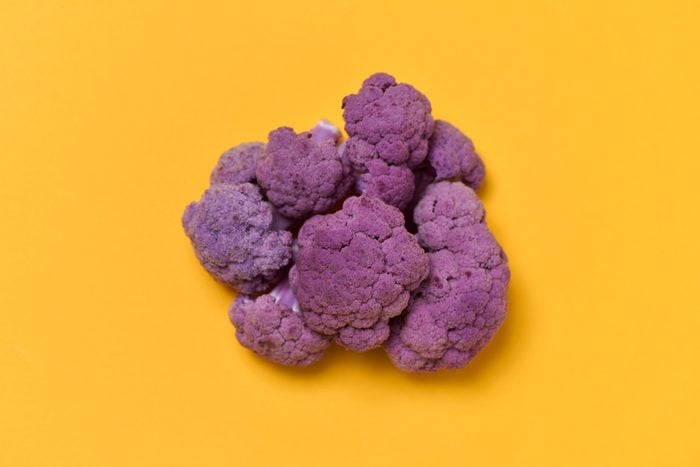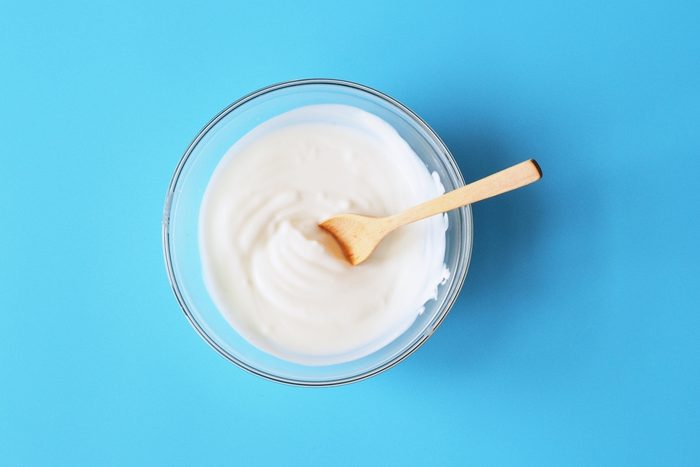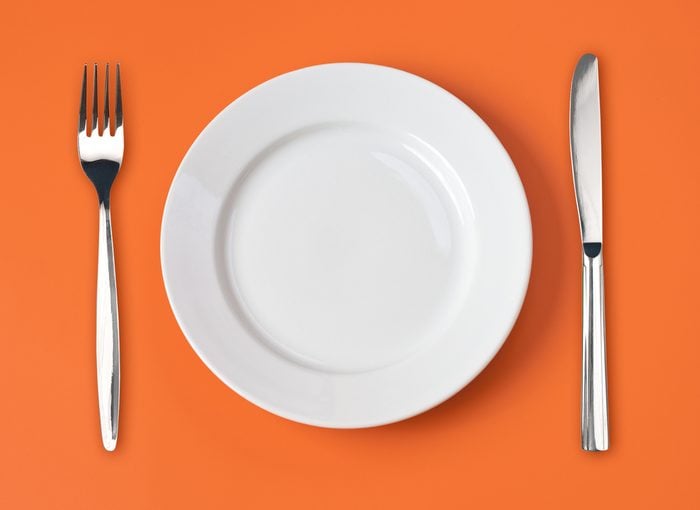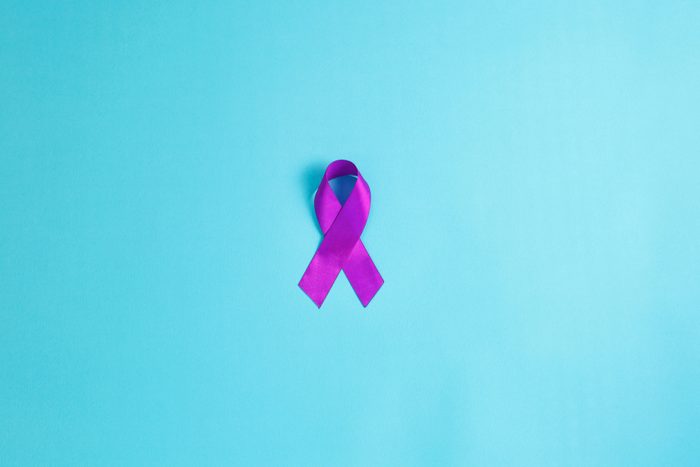
It’s simple, but…
It’s easy to stick to eating the same foods every day—especially if you love them. But it may not be the best thing for your health.
“Humans were designed to graze and hunt, and therefore our diets became naturally varied. This is likely an evolutionary design so that we attain and access a wide variety of nutrients throughout the day, week, month, and over long-term periods of time to optimize our body’s functions,” says Monica Auslander Moreno, MS, RD, LD/N, nutrition consultant for RSP Nutrition.
Read on to learn why eating the same foods may be hurting your health.

It can lead to nutritional deficiencies
“Our bodies need a wide range of macro- and micronutrients, and eating a wide variety of foods, especially fruits and vegetables, can help us meet our body’s needs,” says Wesley Delbridge, RDN, spokesperson for the Academy of Nutrition and Dietetics. “Eat the colors of the rainbow when it comes to fruit and vegetables, and don’t forget that frozen vegetables are just as healthy as fresh and they don’t spoil as quickly.” Almost everyone would agree that “eat the rainbow” is a good rule of thumb, but read about the 11 biggest health controversies of all time.

It hurts your gut health
“Eating a wide variety of foods [provides] the environment the gut needs to grow the healthy bacteria that can boost our immune system and improve digestion,” says Delbridge. “Fermented foods, such as yogurt and kefir, provide the probiotics (healthy bacteria). Eating fruits and vegetables provides fiber and prebiotics (food for the probiotics) to create a healthy gut environment.” This is the difference between prebiotics and probiotics.

It can stunt your weight loss
A recent study in PLOS One found that people who ate a larger variety of healthy foods were able to lose weight faster than those who had less variety.

It may impact how long you live
In research published in the International Journal of Epidemiology, investigators tracked the health of more than 50,000 women and found that those who ate a wide variety of healthy foods tended to live longer than women who ate the same foods day after day. Try these 19 things you can do under 10 minutes to live longer.

It leads to serious food boredom
“Food should be fun! It should be something you look forward to,” says Delbridge. “Changing up what you eat exposes you to great new foods and new recipes, and helps bring back the fun in eating.” Start with these 49 recipes from the ’80s worth trying.

It hurts your metabolic health
A 2015 study published in the Journal of Nutrition found that those who ate a varied diet had a much lower risk of metabolic disease—a combination of unhealthy factors that can lead to heart disease and diabetes. People eating a good variety watched their cholesterol drop, had less abdominal fat, and lower blood pressure. Here are the 21 worst habits for belly fat.

It isolates your nutritional sources
“We see a lot of people hyper focus on a single nutrient or food because it attracts media fame—turmeric, almonds, kale, spirulina, etc.,” says nutritionist Auslander Moreno. “And while all foods are to be celebrated for their unique nutritional merit, assigning yourself to a confined list of foods because they are the most well-known or well-described will box you in and close you off from various other vital nutrients.” Here are the 10 weirdest food trends of the past century.

You may be overdosing on certain nutrients
If you consume too much of certain foods, you may be putting your health at risk. “Too much turmeric, for example, can interfere with blood clotting and liver function,” says Auslander Moreno. You could get too much of certain toxins, as well, she warns. If you eat, say, fish every day, mercury toxicity becomes a concern—especially if you’re consuming predatory fish (like tuna) and if you are a small person—toxicity is weight-related, says Auslander Moreno. Opt for wild low-mercury fish like salmon, mackerel, herring, and anchovies. Here are the 7 best fish to eat, and 5 to avoid.

It can hurt your immune system
The enhanced nutrition from a varied diet seems to boost immunity, according to a study published in the British Journal of Nutrition. This helped people resist infections; people whose diets had little variation were more likely to get sick due to a weakened immune system. Here are 7 things you think will boost your immunity—but probably won’t.

You may lack energy
A study published in the American Journal of Nutrition found that women who ate the same meal experienced ‘habituation’, which led to decreased energy intake. Here are 50 easy ways to get more energy.

You could be developing an eating disorder
No joke: Known as ‘selective eating disorder’ or ‘avoidant-restrictive eating disorder‘, this condition is characterized “by the persistent refusal to eat specific foods or refusal to eat any type of food due to a negative response from certain food colors, textures, or smells.” The consequences can be malnutrition and unhealthy weight loss. Don’t miss the 11 silent signs you have an eating disorder.

It may increase your risk of cancer
“Eating deli meats for protein for lunch is a quick way to up your risk of certain esophageal and gastrointestinal cancers,” warns nutritionist Auslander Moreno. “The nitrates present in the curing process are linked to these cancers.” Watch out for the 6 silent symptoms of colon cancer.
